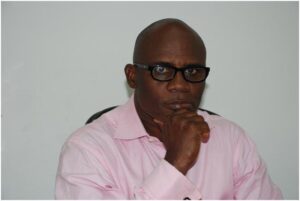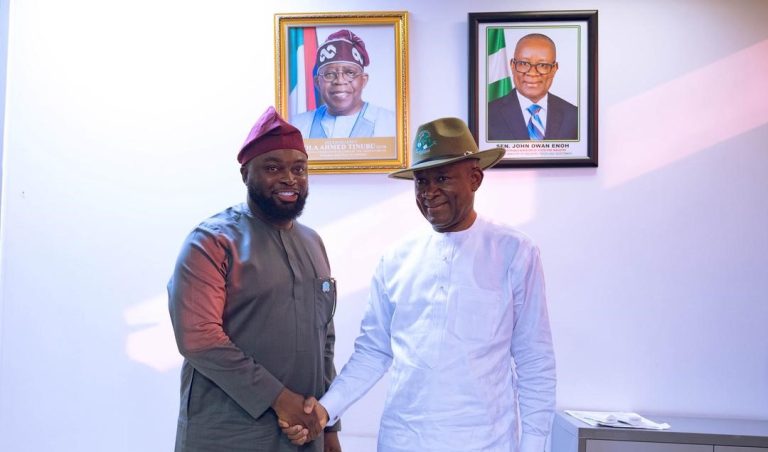By BEN OKEZIE
Coincidentally, tomorrow, being October 1, 2021, marks 61 years Nigeria since gained independence from the British government, being the colonial master.
Since its birth as a nation, the drumbeats of ethnic hatred, political disaffection and, above all, religious violence have continued to haunt the soul of the nation. Months before the early political bigwigs could conclude the negotiations about Nigeria’s independence, a group in Kano city had gone around sowing seeds of ethnicity, peddling false rumours that Independence was to be hijacked by the Yoruba and lgbo, as represented by Chief Obafemi Awolowo and Dr. Nnamdi Azikiwe, and this triggered the May 1953 Kano riot. It was a four-day clash between northerners who were opposed to Nigeria’s independence and southerners, Yoruba and Igbo. The riot claimed hundreds of lives. Innocent human blood was viciously shed like the blood of Abel, and God was angry with the new baby named Nigeria.
Like a rehearsed drama, the Tiv agitated in 1953 against the highhandedness of the northern Fulani rulers. This resulted in the killing of many. Then, from the blues, the bloodletting spread to the West and this resulted in the dastardly ‘Operation Wild Wild West’ of 1966, which opened the floodgates to January 15, 1966, military coup d’état by Majors Chukwuma Kaduna Nzeogwu and Emmanuel Ifeajuna.
Unfortunately, this led to the killing of the Prime Minister of Nigeria and 22 eminent Nigerian politicians and senior military officers of various ethnic affiliations. An overview of the war centred around ethnic and religious hatred. The question is, how can issues of ethnic and religious misunderstanding be amicably resolved in the country? This twin evil has continued to strain the relationship and unity of the country. Sequel to this, the Nigerian Civil War began between the government of Nigeria and the secessionist state of the Republic of Biafra, led by Lt. Colonel Odumegwu Ojukwu, while the Nigerian side was led by General Yakubu Gowon. About 100,000 overall military casualties, while between 500,000 and two million Biafran civilians died of starvation. This trickled into Asaba town in the Delta axis where over 500 people were massacred in 1967.
Like a wall switch, in 1978, the country was bathed with vicious students’ protests tagged “Ali Must Go.” Again, the northern region was drenched in blood when, in October 1982, religious riots by adherents of a killer religious sect known as Yan-Tatsine (Maitatsine) killed over 3,000 people of Bulumkutu, near Maiduguri, and in Kaduna.
Records show that no fewer than 1,013 people were killed in 416 conflicts and violent attacks in the Niger Delta in 2019.
Painful was President Olusegun Obasanjo’s order to the military on November 20, 1999, concerning the predominantly Ijaw town of Odi in Bayelsa State, where over 2,000 people were killed sequel to the context of an ongoing conflict in the Niger Delta over indigenous rights to oil resources and environmental protection.
More painful is the fact that there are government agencies saddled with the internal security of the country, yet these acts are perpetrated without any proactive measures in place.
In 2001, records show that agitating Christian and Muslim rioters in Jos, Plateau State, demonstrated over the appointment of a Muslim politician, Alhaji Muktar Mohammed, as local coordinator of the federal poverty alleviation programme. As a result, 5,000 people lost their lives.
More devastating was the 1993 annulment of the presidential election that was adjudged as the freest election in the country, which business mogul, Bashorun MKO Abiola, was declared to have won. This sparked off several demonstrations and hundreds lost their lives.
Today, due to the poor attitude of security agencies, the country has been embroiled in one of the longest insecurity situation that has lasted over a decade. Indeed, the Boko Haram sect that has developed into a terrorist group has drained the resources of the country and additionally killed over a million people and destroyed hundreds of houses, while hundreds of servicemen and women, including police officers and other security agents, have died in the course of the war.
Apart from the bloodshed caused by ethnic, religious and political crises, the highways are dangerous death traps. A report recently disclosed that, in 2016, more than 11,363 crashes occurred, with 5,053 deaths; while in 2017, more than 10,026 crashes were recorded, with 5,049 deaths. Altogether, a total of 5,181 Nigerians lost their lives in road traffic crashes. Maybe these would have been prevented had the central and state governments done what the Constitution mandated them. Apart from religious, ethnic and political crises, the country has over the years suffered from the inability of various governments to plan against natural disasters like the overflow of the two main rivers, the Niger and the Benue, as they burst their banks. The resulting disaster often causes damage, with deaths on its toll.
As the country celebrates in pain, two major cankerworms eroding the unity and foreseeable greatness of Nigeria are ethnicity and religion. They rear their ugly heads in every sector of the country. Not even the security agencies and public institutions are spared of this deep-rooted problem.
Unfortunately, young Nigerians whose minds have already been polluted religiously, coupled with ethnic hatred, got recruited into our security agencies and they usually exhibit these traits of ethnic and religious bias and hatred whenever they are drafted to operational activities. They unleash such vicious dispositions on members of the public.
Nigeria needs to retrace its steps and stop every government agency and private institution from including ethnicity and religion in requirements either for employment or otherwise. Bandits and herdsmen have continually and consistently drained the energy of the central government and security agencies, while many innocent citizens continue to lose their lives on the platter of injustice, ethnic hatred, religious wickedness and government insincerity.
—————————————————
 SECURITY FILE wishes to celebrate in pain with every reader of this column and pray to God to heal and restore peace to our country.
SECURITY FILE wishes to celebrate in pain with every reader of this column and pray to God to heal and restore peace to our country.
Security File by Ben Okezie is published Every Thursday in the SUN newspaper. Tel.: 08056180088
https://any.peopleandpowermag.com/security-file-sixty-one-years-of-bloodshed-and-insecurity/



